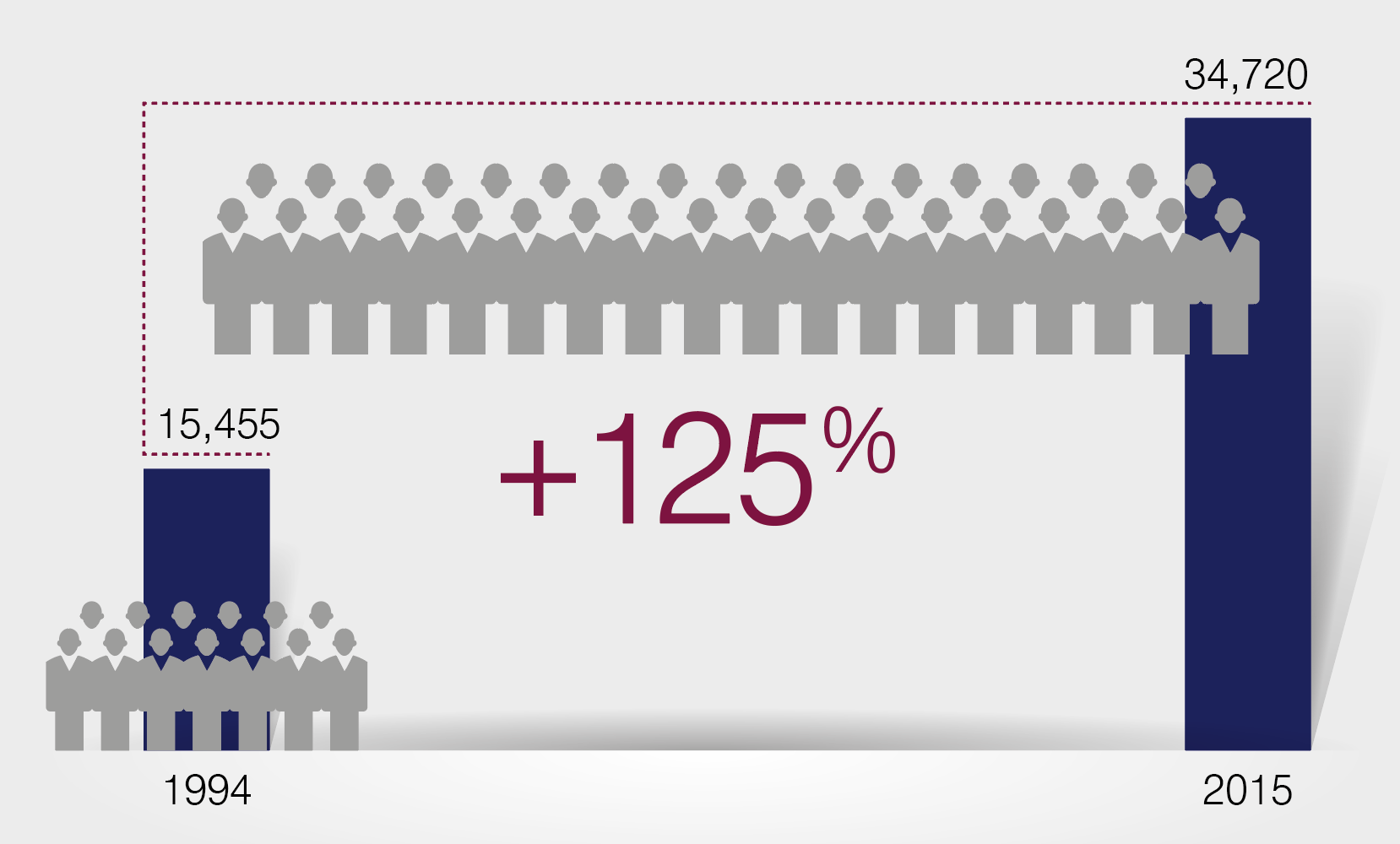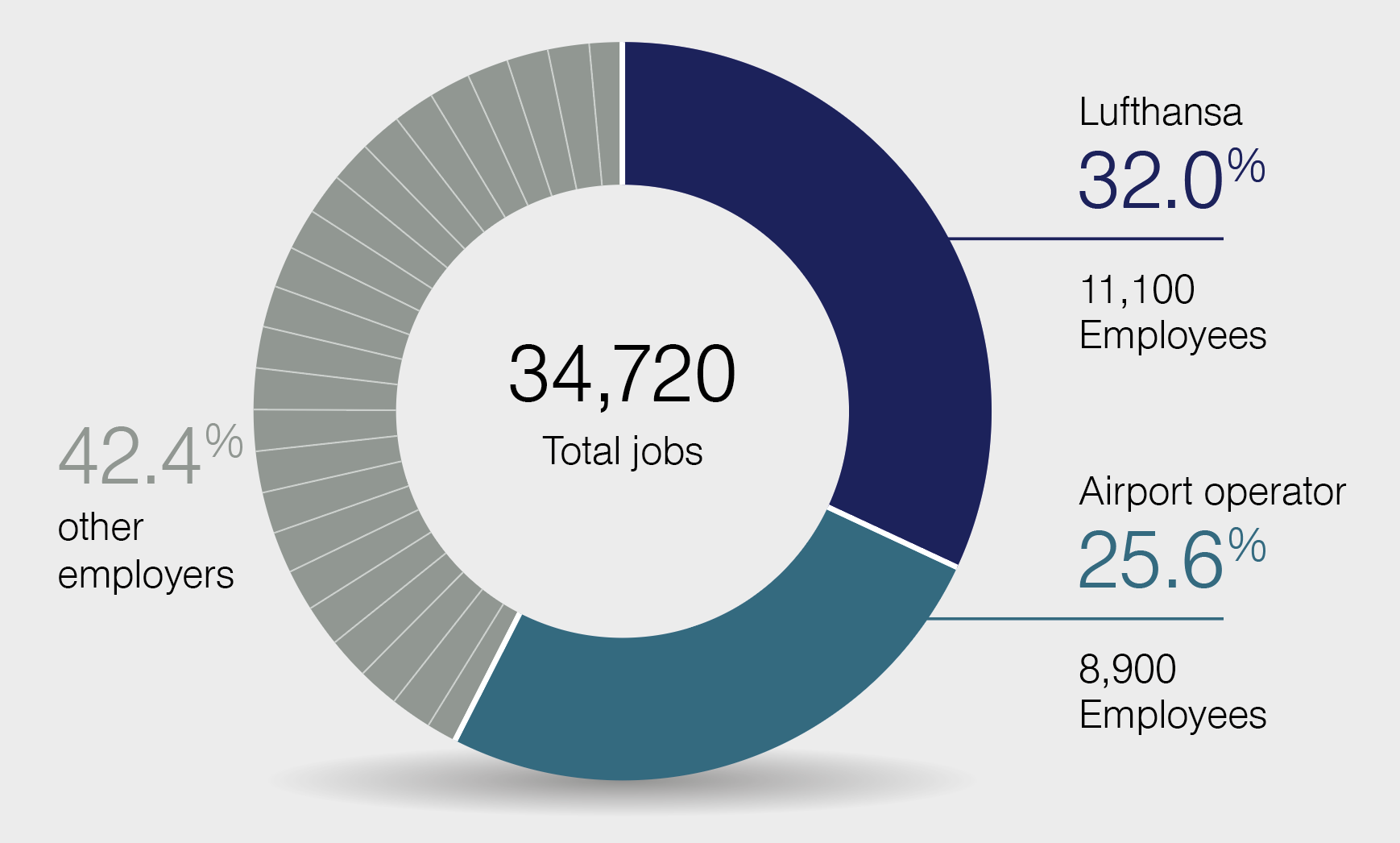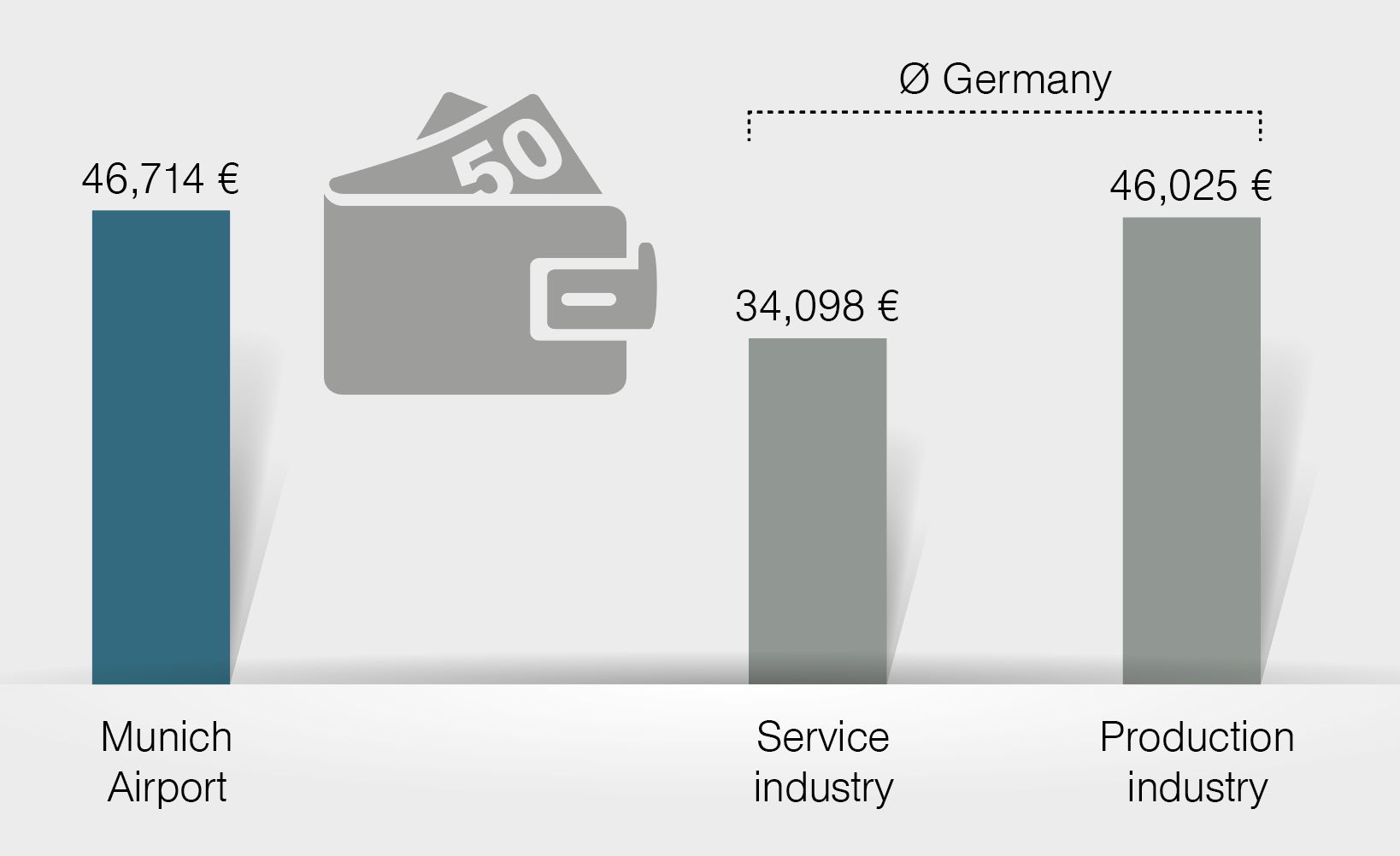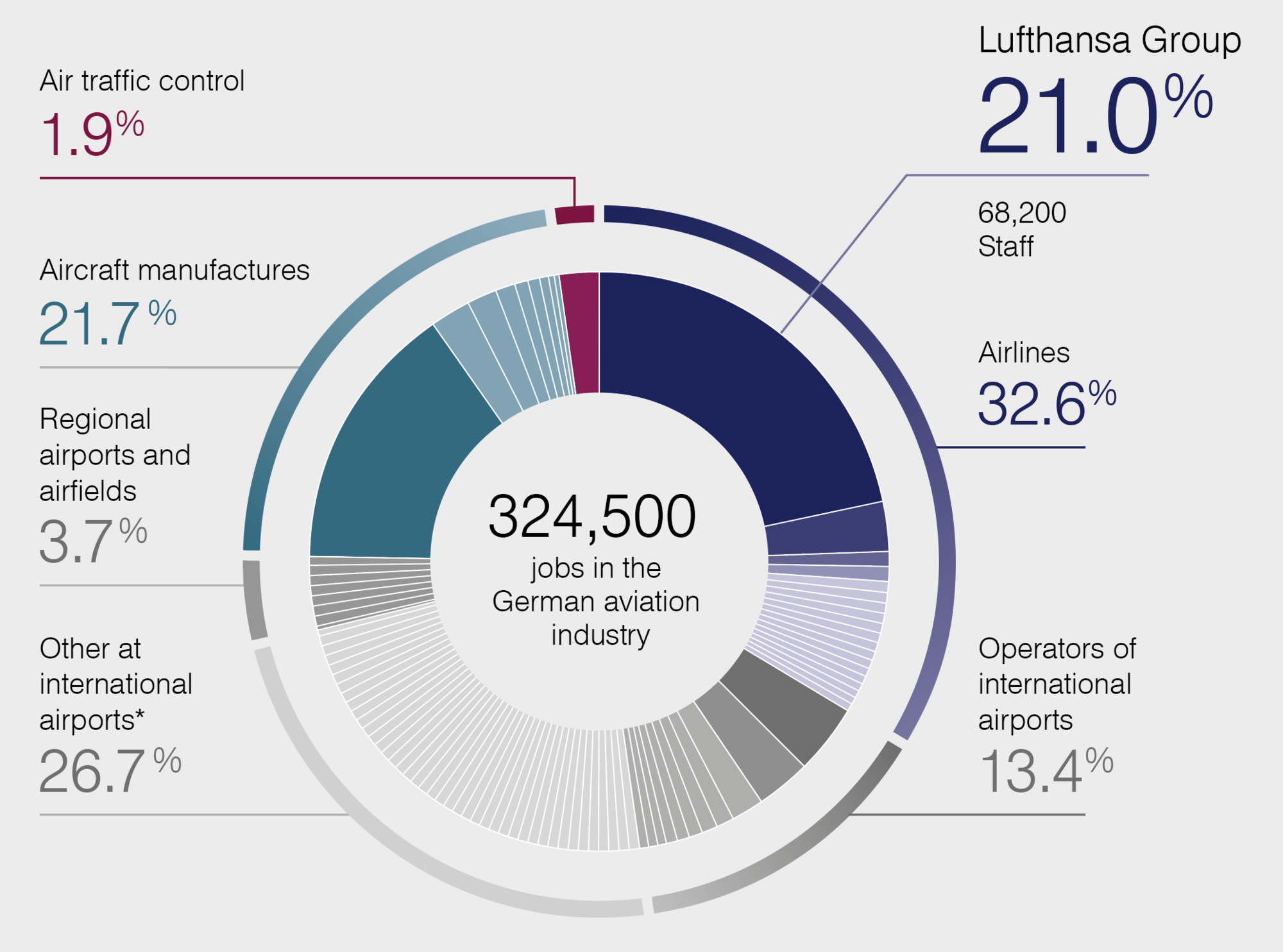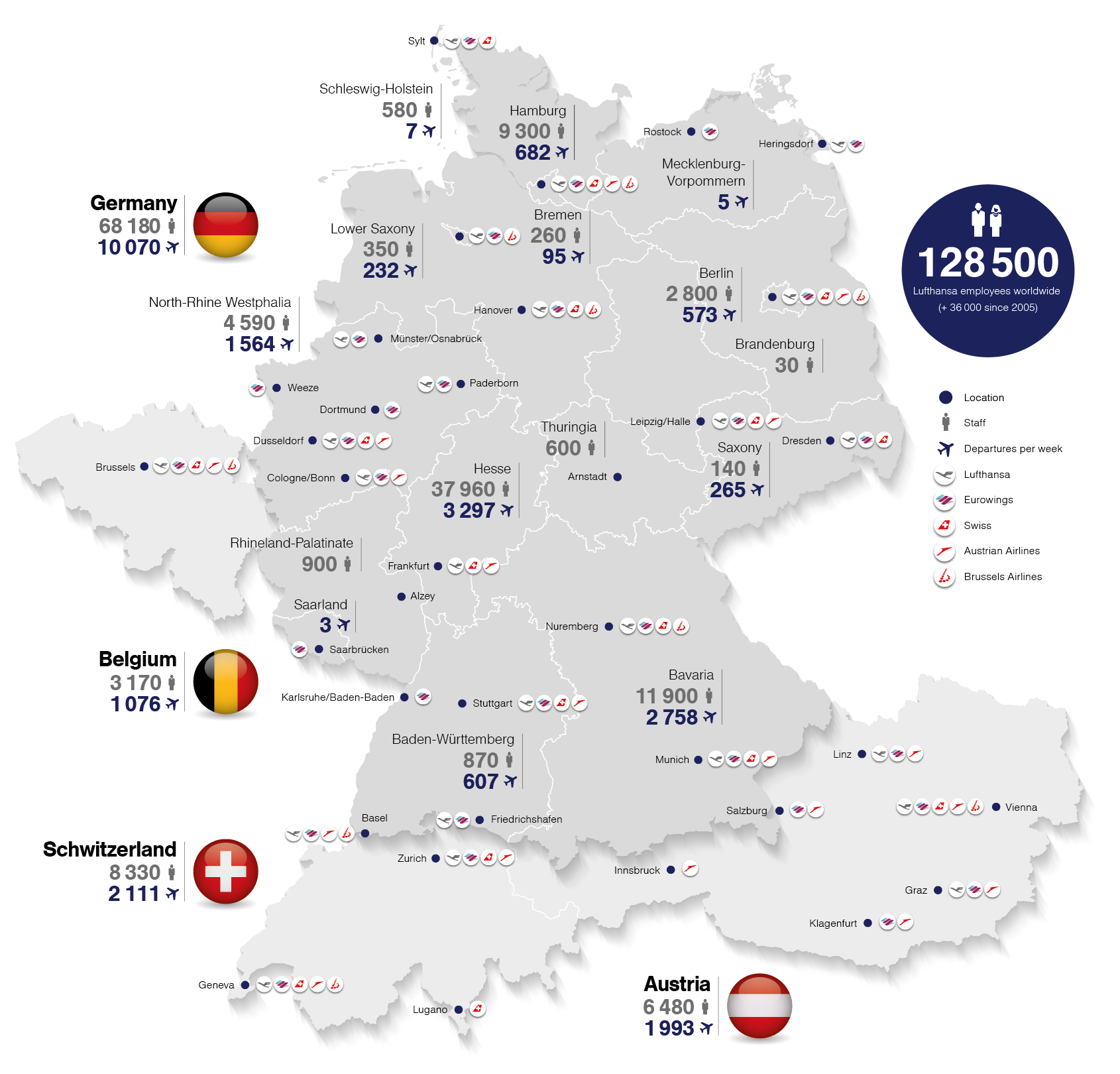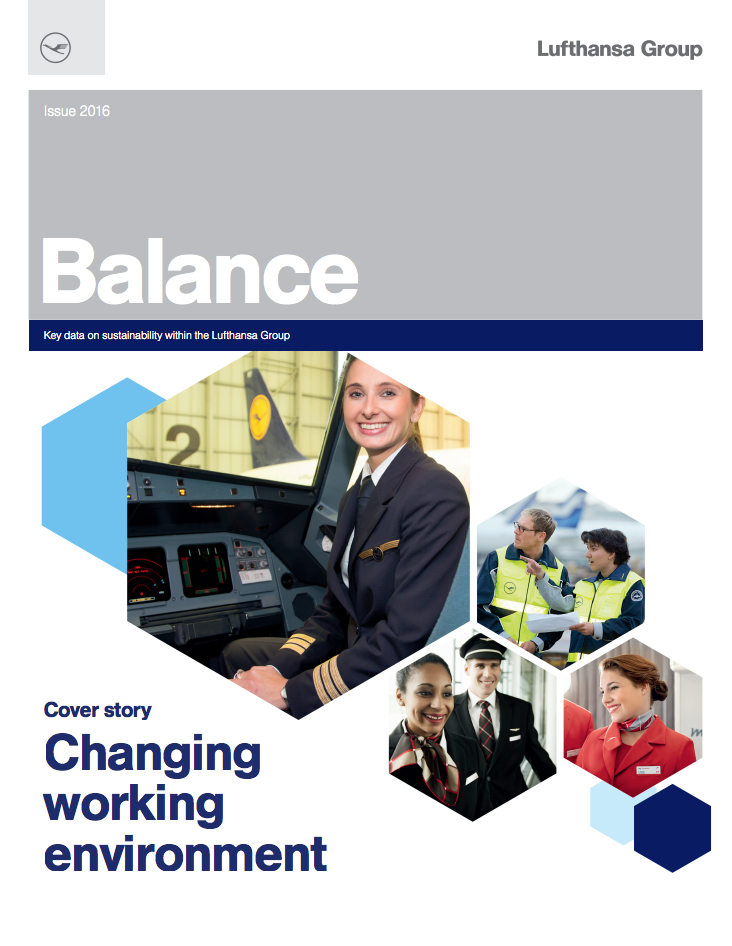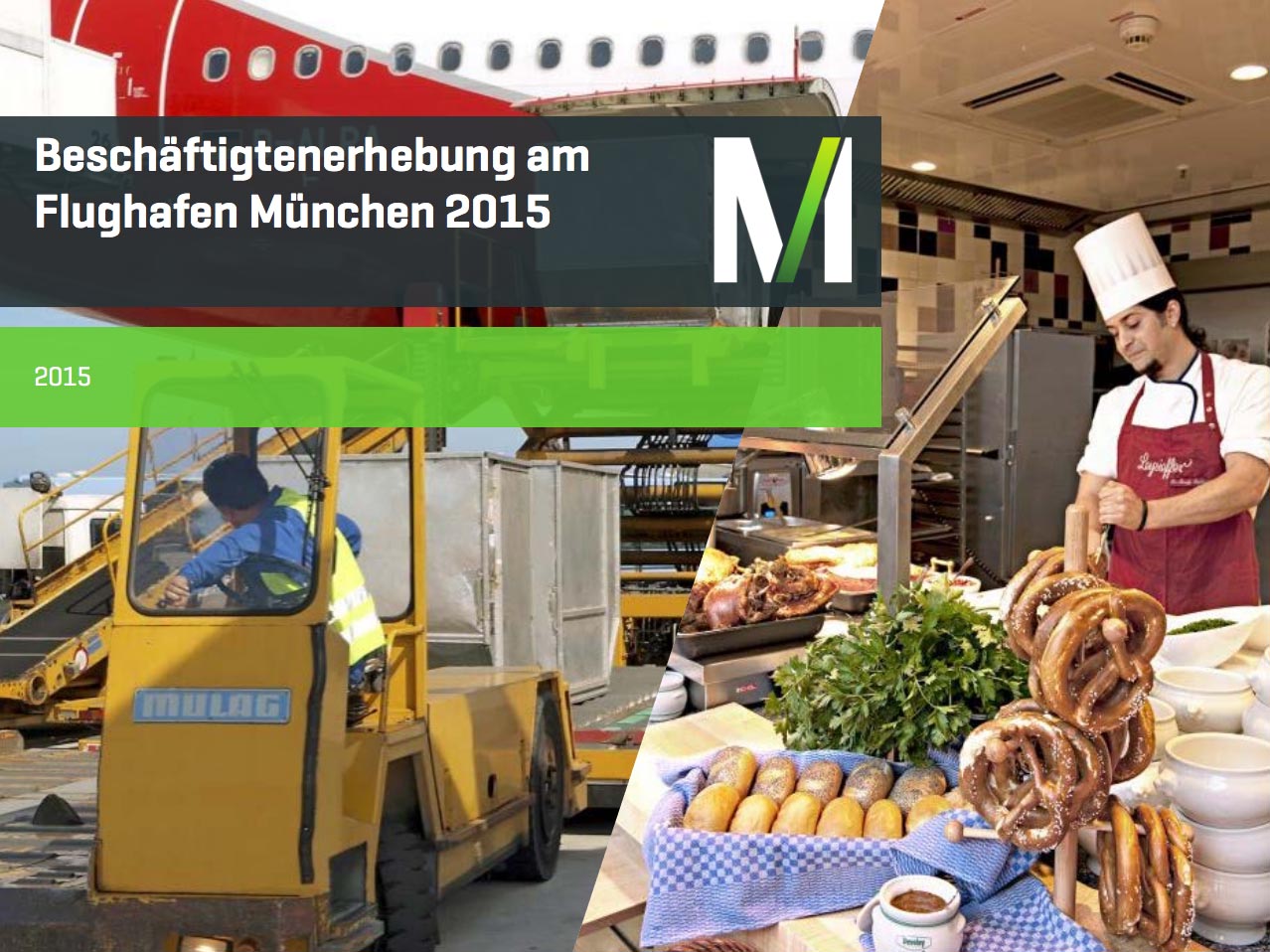Location
Lufthansa:
Good jobs for Germany
Issues of social responsibility are on every political agenda around the world. As such, the EU Commission presented its pillars of social law at the end of April. These focus on equal opportunity, fair working conditions and social protection – issues which also characterize the social market economy. The Lufthansa Group, which this year has welcomed over 3,000 new employees, has always engaged in this debate, and takes social responsibility – something which is not a given in global aviation.
Lufthansa a popular employer
Reputable employer rankings regularly place Lufthansa among the leaders. According to the trendence Graduate Barometer, for example, the Lufthansa Group was among the six most popular employers for German economics graduates in 2016. Lufthansa received 110,000 applications last year.
The Lufthansa Group as a strong employer
Germany’s airline industry has for years been under significant competitive pressure. Nevertheless, the Lufthansa Group invests in good jobs out of conviction. In 2006, the Group employed 95,000 staff worldwide. Today, this is more than 128,500, around 68,000 of whom are in Germany. Key cornerstones of the staffing policy:
- Collective bargaining partnership: Collective bargaining coverage in Germany has dropped to less than 50 percent of employees across all industries. The Lufthansa Group, on the other hand, believes collective bargaining partnerships are the right approach for a fair balancing of interests. While the viewpoints of employers and employees at some European airlines seem to be irreconcilable, Lufthansa and the Vereinigung Cockpit trade union managed to agree on significantly reducing cockpit unit costs in March. And a long-term peace agreement between bargaining parties was concluded with the cabin crew union (UFO) as early as summer 2016 with the help of mediators Platzeck and Wowereit.
- Old-age pension: The policy rightly attributes considerable importance to company old-age pension schemes. 57 percent of employees across Germany receive relevant entitlements. This figure is much higher at Lufthansa.
- Training: The Lufthansa Group trains more than 1,000 young people in currently 34 professions. Coupled with this is pilot training and development. Lufthansa Aviation Training – with twelve training centres, including those at the Berlin, Bremen, Essen, Frankfurt, Munich, Cologne und Rostock facilities – runs one of the world’s biggest simulator fleets, training pilots from more than 200 airlines.
- Diversity: The Lufthansa Group wants to employ more women in managerial roles. In some areas, the company is considered one of the pioneers, such as for the number of women on the supervisory board and executive board: According to the “Women-on-Boards Index”, sponsored by the Federal Ministry for Family Affairs, Lufthansa is ranked seventh among the top 100 listed companies. Lufthansa has also set itself ambitious targets. By the end of 2021, the number of women on the first management level below the executive board of Deutsche Lufthansa AG is to increase from a current 10.1 percent to 20 percent, and on the second management level from 25.5 percent to 30 percent.
Lufthansa is successfully embracing the social partnership. Passenger numbers are increasing, and the economic results are enabling further investment in digitisation and fleet upgrades. The company believes a partnership between employer and employee is key here.
Employee rights not a given, and often jeopardised
This perspective is not a given. Many airlines whose crews do not enjoy even vaguely comparable employee rights fly to Germany. See the national Gulf airlines, for example. For Emirates, Germany’s social partnership is indeed a source of mockery. At the end of 2015, coinciding with the start of Lufthansa’s massive strikes, the Gulf carrier launched full-page ads saying “You can always rely on us (…) 365 days a year.” Dubai, the home Emirate of Emirates Airlines, does not have trade unions, workers’ councils or the freedom to strike. Workers’ rights have also been massively restricted in Turkey, which is building a 150-million-passenger airport in Istanbul (as a comparison: Frankfurt recorded around 60 million passengers in 2016).
Germany’s social market economy rightly pursues a different course. And Lufthansa is sticking with it, even if this involves tremendous constraints in highly difficult situations. As such, the strikes between 2014 and 2016 cost the group around 400 million euros.
“At others' costs – not low costs”
Fierce competitors also include those from other EU countries, who officially have to uphold employees’ rights, but seek dubious constructs to evade obligations. As such, the practices of an Irish price-dumper are constantly triggering crackdowns and legal processes across Europe. It is accused of tax and social-security fraud, with pilots being hired as pseudo self-employed people. “At others’ costs” is no doubt a better way to describe these airlines than “at low costs”, particularly given they also pocket millions in subsidies as lures at numerous airports – and no longer just at small airports; lately this has also been happening at hubs. This would be unthinkable at Paris-Charles-de-Gaulle or London Heathrow.
Politics can support good jobs
Politics can significantly contribute towards supporting good jobs in aviation. Competition-distorting subsidies generated by fees at German airports – whether it be small airports or major hubs – to favour foreign dumping airlines are unacceptable. As the federal states are often the airports’ main owners, they have considerable scope. Air-traffic laws are another important factor for non-EU airlines. As part of the Europeans for Fair Competition (E4FC) alliance, dozens of European trade unions are once again calling for fair, verifiable air-traffic agreements with third-party states to reduce dumping competition which disadvantages employees.
Lufthansa a popular employer
Reputable employer rankings regularly place Lufthansa among the leaders. According to the trendence Graduate Barometer, for example, the Lufthansa Group was among the six most popular employers for German economics graduates in 2016. Lufthansa received 110,000 applications last year.
Arnstadt
The “N3 Engine Overhaul Services” 50/50 joint venture established between Lufthansa Technik and Rolls Royce in 2007 has become an industrial beacon. It overhauls all of Lufthansa’s Airbus A380 engines, and will soon be doing the same for the A350s.
Berlin/Brandenburg
Home to around two dozen Lufthansa companies, such as Lufthansa InTouch: The approx. 500 customer advisors process 2.6 million transactions a year, and control the worldwide service center network.
Frankfurt
Around 81,000 people work at Frankfurt Airport, making it Germany’s biggest workplace. The Lufthansa Group’s contribution is as follows: Around 38,000 staff, making it the biggest employer by far; 700 flights per day; 190 stationed aircraft; two thirds of all passengers flying with Lufthansa Group airlines.
Hamburg
The headquarters of Lufthansa Technik, the world market leader for aircraft repairs and maintenance services. The company is investing 200 million euros in R&D projects on the Elbe and other locations between 2014 and 2018 – with money going towards digital solutions and new repair and automation processes, among other things.
Cologne
The headquarters of Eurowings, with 3,500 staff. The airline started in 2017 with 150 aircraft, and has quickly risen to number three in Europe point-to-point services – the strongest growth recorded by any airline.
Leipzig
2016 saw Leipzig Airport record Europe’s largest air cargo growth for the eleventh time running. Partly thanks to AeroLogic: The cargo airline of Lufthansa Cargo and DHL Express flies eight B777 freighters to 20 destinations worldwide from Leipzig.
Munich
Lufthansa has 100 aircraft stationed in Munich, where the airline is also building Europe’s biggest Airbus A350 fleet with a total of 15 aircraft. According to the list price, the investment totals around 4.5 billion euros.
Neu-Isenburg
Neu-Isenburg: Lufthansa company LSG Lufthansa Service Holding AG operates over 200 catering companies in around 50 countries from its headquarters here. It supplies more than 300 airlines with over 628 million meals a year. The worldwide market share is just under 30 percent.
Sustainability report
Balance: The changing world of work
The Lufthansa Group dedicated its Sustainability Report for 2016 to its employees. The feature topic addresses the changing world of work and the associated challenges, including for our HR Management. The Sustainability Report for 2017 will be published in early July.
